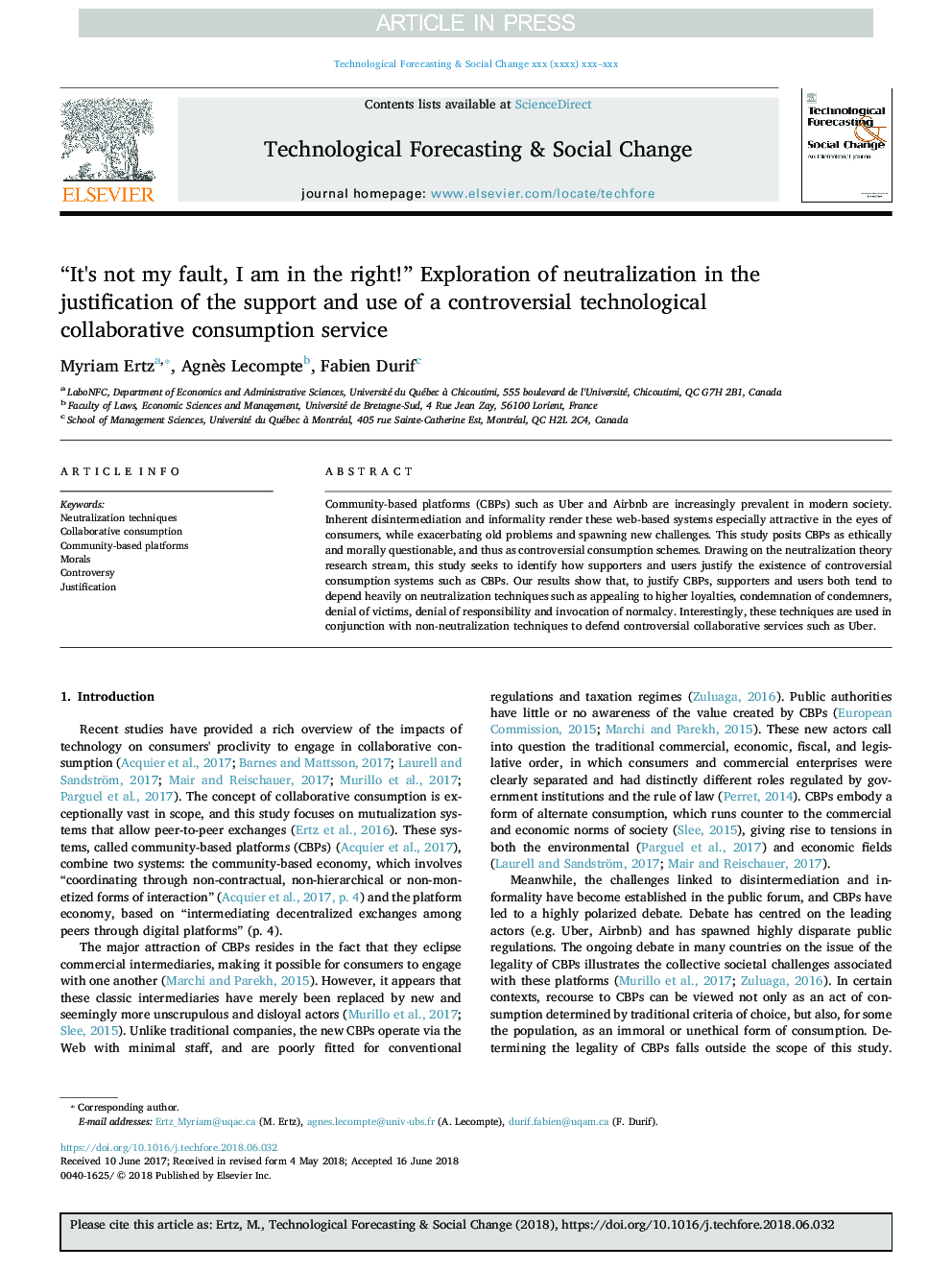| Article ID | Journal | Published Year | Pages | File Type |
|---|---|---|---|---|
| 7255173 | Technological Forecasting and Social Change | 2018 | 11 Pages |
Abstract
Community-based platforms (CBPs) such as Uber and Airbnb are increasingly prevalent in modern society. Inherent disintermediation and informality render these web-based systems especially attractive in the eyes of consumers, while exacerbating old problems and spawning new challenges. This study posits CBPs as ethically and morally questionable, and thus as controversial consumption schemes. Drawing on the neutralization theory research stream, this study seeks to identify how supporters and users justify the existence of controversial consumption systems such as CBPs. Our results show that, to justify CBPs, supporters and users both tend to depend heavily on neutralization techniques such as appealing to higher loyalties, condemnation of condemners, denial of victims, denial of responsibility and invocation of normalcy. Interestingly, these techniques are used in conjunction with non-neutralization techniques to defend controversial collaborative services such as Uber.
Related Topics
Social Sciences and Humanities
Business, Management and Accounting
Business and International Management
Authors
Myriam Ertz, Agnès Lecompte, Fabien Durif,
